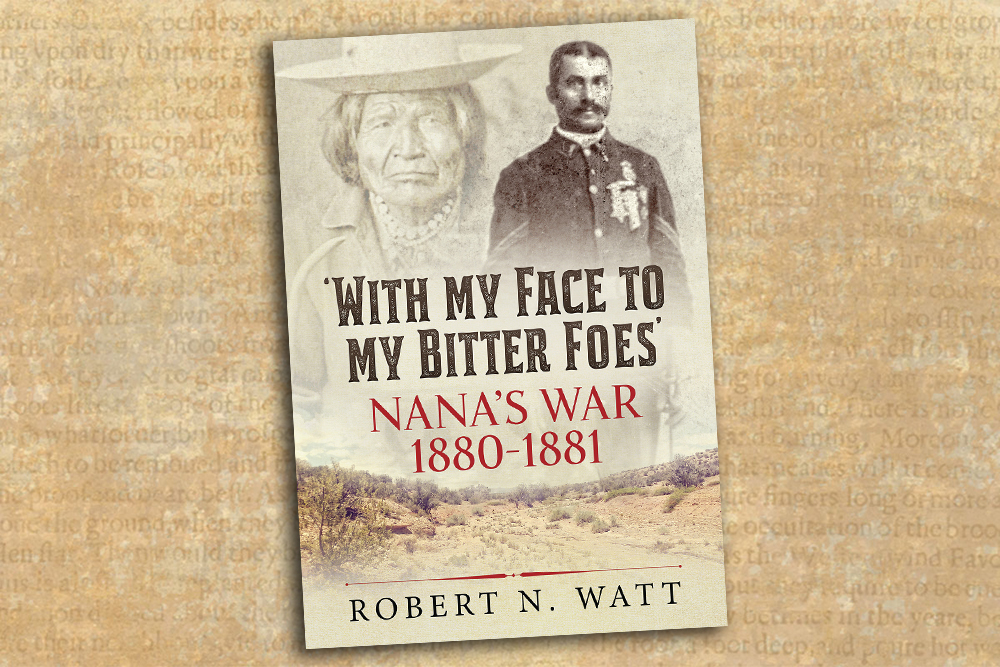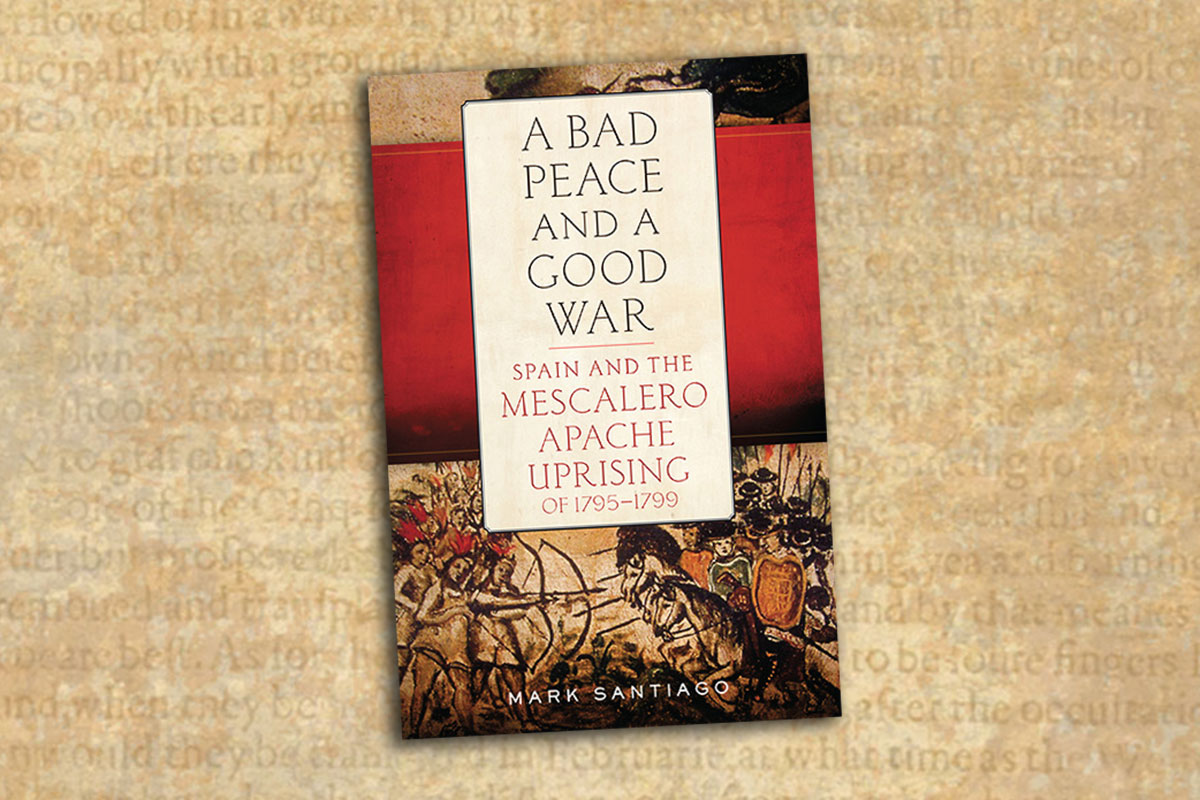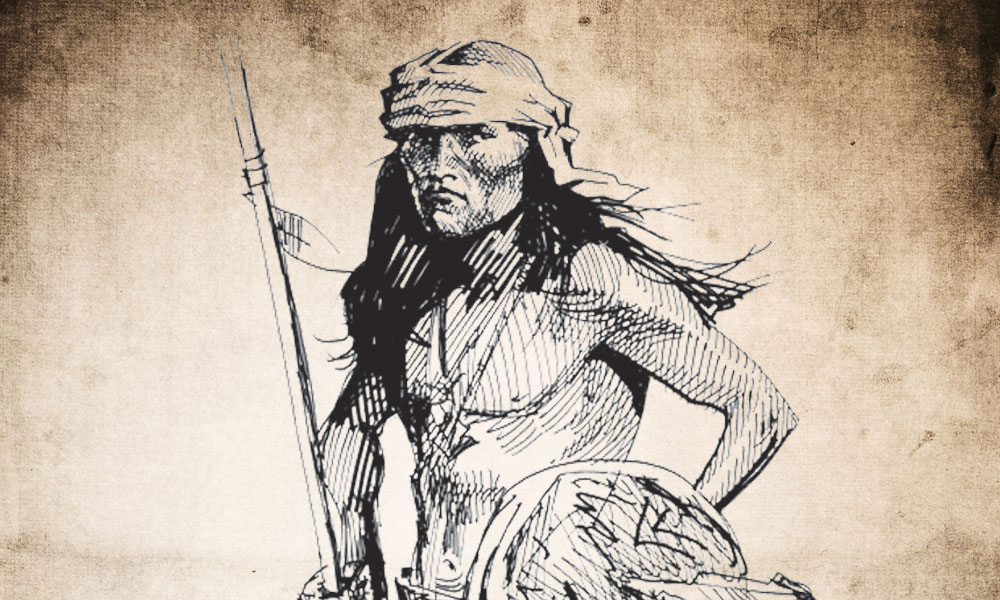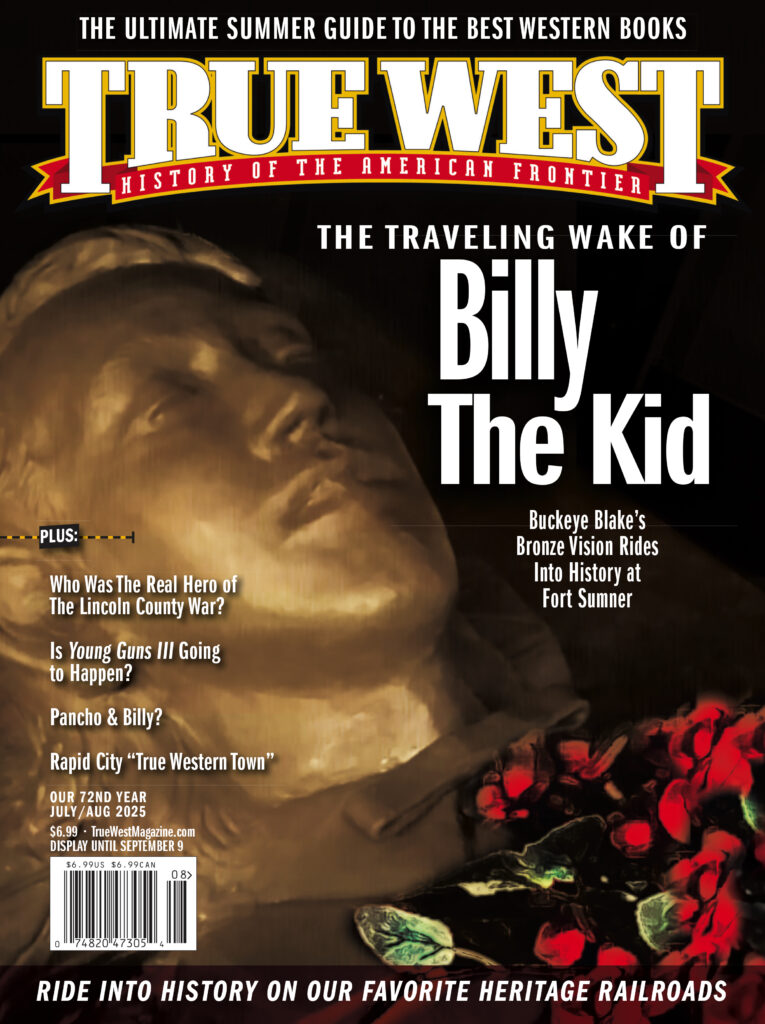
Historian Robert N. Watt’s “With My Face to My Bitter Foes”: Nana’s War 1880-1881 (Helion & Company, $49.95) is the much-anticipated conclusion to his Chihenne Apache/Victorio Campaign of 1879-1881 three-volume series. The scholar’s comprehensive research of the lesser known Apache conflict (as compared to the Cochise- and Geronimo-led Chiricahua Apache wars) establishes a new baseline for scholarship on the Indian war. “While the Victorio Campaign has not been completely forgotten in general terms, it has not yet been given due credit as one of the most important events in the history of the conflict between the Apaches and their U.S. and Mexican opponents,” Watt writes. “For historians, the lessons to be drawn from a detailed study of the Victorio Campaign is that the minutiae of history are not to be dismissed.”
Students of Apache history who read Watt’s “With My Face to My Bitter Foes” will quickly realize they will want to read his two previous volumes in the Helion & Company series: Horses Worn to Mere Shadows: The Victorio Campaign 1880 (2019) and “I Will Not Surrender the Hair of a Horse’s Tail”: The Victorio Campaign 1879 (2018) and add them to their library of U.S.-Indian history. Watt’s books should be recognized as the greatest multi-volume contribution to Apache-American history and warfare since Edwin Sweeney’s comprehensive and multi-volume series on the Apache wars were published between 1991 and 2010.
Readers will also come to a quick realization that Watt is not just an ivory-tower researcher from the U.K. but a historian who has traveled thousands of miles—multiple times—to drive and hike through the rugged Southwestern lands where the Apaches fought for their lives and land. His boots-on-the-ground methodology is demonstrated in both his prose—which reflects his knowledge of the land and climate where Nana’s War occurred—and his photo illustrations, which provide the reader with a present sense of where the conflict took place in 1880-1881.
A lecturer in the Department of Political Science and International Studies at the University of Birmingham, Watt is currently one of the world’s most active academic historians investigating, researching and writing about the Apache Indians of the American Southwest. Like his two prior volumes, “With My Face to My Bitter Foes’” contains an inclusive bibliography that will immediately become a must-have resource. His appendix to the materials of the first chapter and historical supplements—including “The Victorio Campaign August 1879-October 1881: Campaign Chronology”—are invaluable for researchers.
Equally important to his research is the fact that Watt is an international historian with interdisciplinary training in comparative imperialism, military history and colonialism. As an academic, his prose is very scholarly, densely descriptive and when necessary, purposely provocative. He poignantly states in his conclusion: “neither Victorio nor Nana succeeded in achieving their objective [the return of their Ojo Caliente reservation]; the U.S. government did not force or persuade the Chihenne Apaches to surrender; and the Chihuahua government did not eradicate their Apache opponents. Thus, in short-term, nobody achieved their policy goals. In other words, nobody won.”
—Stuart Rosebrook





